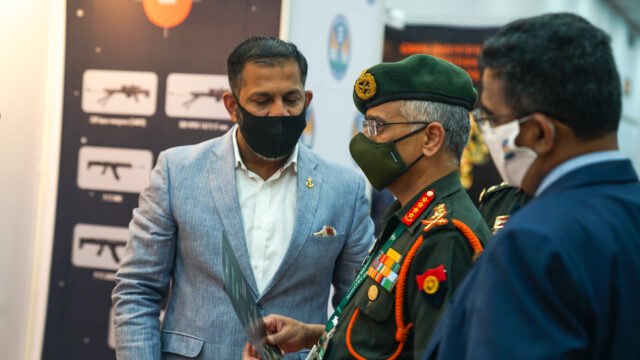NEW DELHI: India’s latest round of Gulf diplomacy is being driven by three high-profile visits: Gen. M.M. Naravane will be the first army chief to visit the United Arab Emirates (UAE) on Wednesday. Later this month, External Affairs Minister S Jaishankar will be in Qatar and Kuwait, while his deputy V. Muraleedharan will hold discussions in Oman. Of the latter two visits, more later.
Gen. Naravane’s visit to the UAE comes at a time when the Gulf is in flux. Joe Biden’s election could see the restoration of the nuclear deal with Iran but how, in what manner and will Tehran agree if the U.S. adds further conditions, is not clear. Add to that the fact that some Gulf states have recognized Israel.
Does India have a role in this region as a potential contributor to its security? It would seem so given the prevailing vacuum with the slow decline of Pax Americana. But what does India get? The army chief’s visit may clear some of the fog and help this country think through what it is prepared to do and how.
“One point may not have been lost in the defence ministries of either country,” says former diplomat Mahesh Sachdev, who served in Riyadh and Jeddah and also headed the Gulf division in the External Affairs Ministry, “that there already exists a level of interoperability given some common equipment used by India and the UAE military. UAE officers regularly attend India’s National Defence College. There are annual air and naval exercises.”
The visit will help Gen. Naravane understand the capabilities of the Emirati military, which although small appears to have performed well in Yemen (the U.S. described them as “Little Sparta”, a reference to the fighting spirit of the ancient city state in Greece). Although the UAE withdrew its military from Yemen last October, it has left in place a large trained and armed proxy force called the Southern Transition Council (STC) to protect its political and commercial interests. It underscores the UAE’s expanding geopolitical ambitions which have created new facts on the ground.
The STC controls south Yemen including the crucial port of Aden at the mouth of the Red Sea. It dominates in the island of Socotra about 400 km to the south, in the western Arabian Sea. Directly across is Djibouti where the UAE and Saudi Arabia reportedly have permission to operate from. There are also reports that the Emiratis have military facilities in Somalia on the Horn of Africa and Eritrea on the Red Sea although these are often projected as a civilian element here in the form of Dubai Ports World.
This vast expanse of water is of strategic import since Gulf oil moves through these sea lanes to Europe. In that sense, the UAE is a security guarantor in this part of the world.
The UAE is also active in civil-war-torn Libya, working with the rebel Gen. Khalifa Haftar against the UN-recognised government in Tripoli. “Is it helping to stabilize the situation? Has it helped defeat or given new life to extremist Islamic groups? Most important, what’s the end game,” asks Sachdev.
Should India get involved and what are the implications of such involvement. It would need a clear strategic vision, a clear doctrine, and India needs to ask itself one question: can the UAE and India work together?
As Gen. Naravane will visit Saudi Arabia during the second leg of his tour, he would be able to develop an understanding of the subtle differences that underlie the Saudi and Emirati positions on a number of issues. In Yemen for instance, the Emiratis appear to have lately pursued their own agenda. They recognized Israel while the Saudis have, at least publicly, stuck to the traditional Arab position.
Most interesting is the UAE opposition to political Islam which has bred monsters like Al Qaeda and the Islamic State. It also helps explain the deportation to India of terrorist fugitives wanted for various crimes and acts of violence and the visa ban on some Islamic countries including Pakistan.
More than anything, the army chief’s visit will drive home the context in which the broader security relationship with the UAE will have to evolve: three million Indian citizens living in the UAE; $60 billion in trade; two-thirds of India’s crude oil comes from here. Given that our stakes have never been higher, India needs to dovetail its security interests with this larger geo-economic synergy. A defence and security dialogue will help clarify how these vital national security interests can be secured.
















